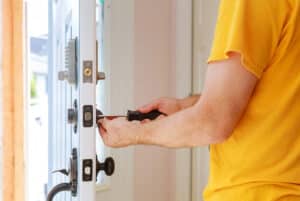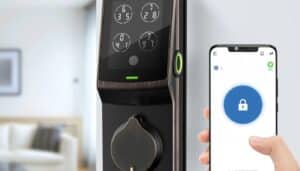Consider these 21 facts on locksmithing, and you may be pretty impressed with exactly what occurs in this industry. What do you know about the industry and about the people you welcome into your home to help with your property’s locking and security needs? Here’s a closer look at what you may not have expected.
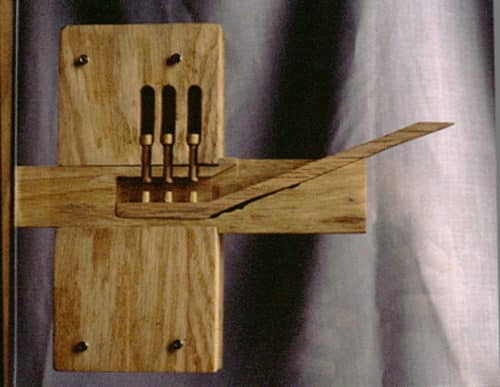 The locksmithing industry goes back thousands of years. The first locks that we know of date to the ancient Egyptian culture, some 4,000 years ago, and the oldest locks featuring keys were made in 704 BC. Perhaps the most abundant time period for lock and key development was in the Ancient Roman culture. During this time, the Romans made locks out of iron and bronze. Often, they would create key handles with incredible detailing and design work. The more elaborate it was, the more likely it was your family was wealthy. Lock and keys were also a sign of wealth throughout Egyptian culture.
The locksmithing industry goes back thousands of years. The first locks that we know of date to the ancient Egyptian culture, some 4,000 years ago, and the oldest locks featuring keys were made in 704 BC. Perhaps the most abundant time period for lock and key development was in the Ancient Roman culture. During this time, the Romans made locks out of iron and bronze. Often, they would create key handles with incredible detailing and design work. The more elaborate it was, the more likely it was your family was wealthy. Lock and keys were also a sign of wealth throughout Egyptian culture.
 Famed magician, Harry Houdini worked as a locksmith for years. He studied the trade and learned to perfect locks – and lockpicking. He even provided his skills as a locksmith for free to those who needed help. He learned as much as he could about how locks worked and how to work around them to ensure the outcome he needed, often a way to escape a lock he was locked into during a performance. Harry Houdini was a master at locksmithing as a result.
Famed magician, Harry Houdini worked as a locksmith for years. He studied the trade and learned to perfect locks – and lockpicking. He even provided his skills as a locksmith for free to those who needed help. He learned as much as he could about how locks worked and how to work around them to ensure the outcome he needed, often a way to escape a lock he was locked into during a performance. Harry Houdini was a master at locksmithing as a result.
 When you head out to purchase a new lock or ask your locksmith to provide one to you, one thing you are sure to find is the name “Schlage” available to you. This is one of the most well-known and respected names in the industry. But, most people do not know the story behind it. Walter Schlage was the founder of the company. He created the first cylindrical style pin-tumbler type of lock. His lock, which was first developed and sold in the 1920s, was considered one of the most advanced options available today. The company remains one of the most innovative available.
When you head out to purchase a new lock or ask your locksmith to provide one to you, one thing you are sure to find is the name “Schlage” available to you. This is one of the most well-known and respected names in the industry. But, most people do not know the story behind it. Walter Schlage was the founder of the company. He created the first cylindrical style pin-tumbler type of lock. His lock, which was first developed and sold in the 1920s, was considered one of the most advanced options available today. The company remains one of the most innovative available.
 Some keys say “do not duplicate” on them. This is meant to tell locksmiths not to duplicate a key. It sometimes encourages a consumer to feel they have to turn to a car manufacturer or the key manufacturer to get a new key. And, in some cases, it is used as a way to ensure that, if the key is lost, the lock will need to be replaced. This is not necessarily true. In fact, a skilled technician can duplicate just about any type of key.
Some keys say “do not duplicate” on them. This is meant to tell locksmiths not to duplicate a key. It sometimes encourages a consumer to feel they have to turn to a car manufacturer or the key manufacturer to get a new key. And, in some cases, it is used as a way to ensure that, if the key is lost, the lock will need to be replaced. This is not necessarily true. In fact, a skilled technician can duplicate just about any type of key.
 An American inventor named James Sargent created the first combination lock. These locks (like those used today on every school locker) were cutting-edge technology at the time. The locks, which he developed in 1857, were some of the most important discoveries in the industry during this timeframe. The mechanism used to develop this type of lock is the same type used in bank vaults and is still in use today.
An American inventor named James Sargent created the first combination lock. These locks (like those used today on every school locker) were cutting-edge technology at the time. The locks, which he developed in 1857, were some of the most important discoveries in the industry during this timeframe. The mechanism used to develop this type of lock is the same type used in bank vaults and is still in use today.
 Deadbolts are one of the most complex and most important components of security. Most homes have one on their front door. Even though today’s options are available to allow a property owner to install his or her own deadbolt, it is wise to call a pro instead. Deadbolts offer excellent protection but require more skill to install properly to ensure they function as intended. The good news is most locksmiths can install and repair deadbolts as it is a common service offered.
Deadbolts are one of the most complex and most important components of security. Most homes have one on their front door. Even though today’s options are available to allow a property owner to install his or her own deadbolt, it is wise to call a pro instead. Deadbolts offer excellent protection but require more skill to install properly to ensure they function as intended. The good news is most locksmiths can install and repair deadbolts as it is a common service offered.
1. Not All Locksmiths Have a License
When you welcome someone into your home, the first thing you expect is that you can trust this professional to provide you with outstanding service. You expect that they have a license – but only 15 states actually require licensing in this industry. Just because a company claims to be the best option out there does not mean they have an official license. Licensing is required in the following states:- Alabama
- California
- Connecticut
- Illinois
- Louisiana
- Maryland
- Nebraska
- Nevada
- New Jersey
- North Carolina
- Oklahoma
- Oregon
- Tennessee
- Texas
- Virginia
2. Security Has Long Been a Concern

Reproduction of an ancient wooden Egyptian pin tumbler type lock.
3. The Skill of Creating Locks Combines Numerous Industries
You may think the job of a locksmith is simple and looks pretty easy. However, this is not necessarily the case. In fact, locksmiths have skills in a variety of important industries. This includes areas of mechanical engineering, machinists, security, and carpentry. When tasked with providing the best service and security for an area, a locksmith must troubleshoot the location and create a plan using each of these skills.4. Lockpicking Is a Key Component of the Industry
It is common to see people picking locks in the movies, but what many people do not realize is that many locksmiths have these skills. They have to. It helps them to solve their customers’ problems such as being locked out of a property without access to a key. They also are often able to help with safe access. Qualified, professional companies only provide access to the property they can verify belongs to the person on the property, though. This is another reason to only give trusted professionals access to your home.5. There Are No Regulations Governing Locksmiths
Another key area of concern for property owners is the simple fact that there is no government oversight over the industry in general. As noted previously, only a handful of states actually require licensing. These require certification by the professional, but there is not a requirement to obtain a specific level of education or training across the country. It is also important to recognize that this often indicates some locksmiths may claim to provide services without having truly verified skills. Always verify the company and the individual technician before hiring them to provide a service on your property. This is the best way to protect yourself.6. Harry Houdini Provided Free Locksmith Services
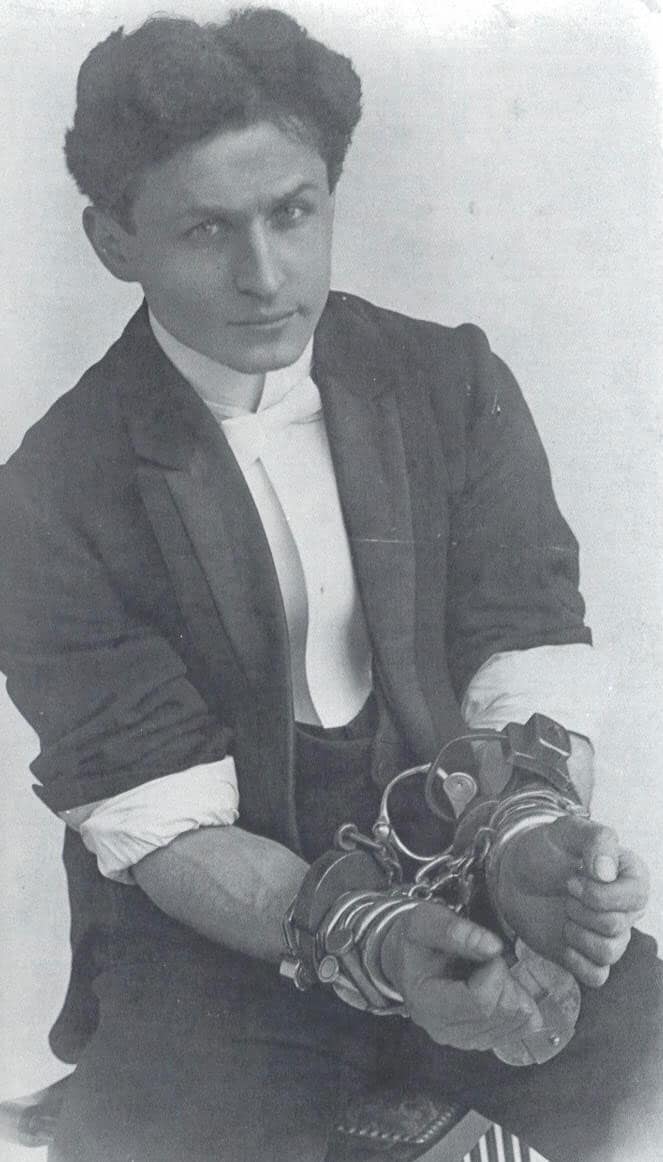
Harry Houdini was an accomplished locksmith and he’d provide his services for free.
7. Not All Locksmiths Have the Same Skills
It is a misconception that you can call any locksmith and get the same type and quality of service. Rather, what you will find is that most locksmiths provide a very specific, zeroed-in focus for services. This indicates that locksmiths are not always trained and experienced in all areas. For example, in some areas, there is a need for safecracking whereas in others there is no such need. When choosing a locksmith, then, consumers should find out what types of services are available, but also what type of service the technician specializes in.8. It Is Better to Wait Until Morning to Call a Locksmith
Locksmiths value their time – just like any other service provider. In some situations, they will offer emergency services, such as lockout services for a home or a vehicle. However, if this is something that can wait until the morning, it is often better to do so. That is because most will charge a significant amount more for emergency or after-hours work they provide. This is much like any other industry would do, such as a plumber or electrician. The key here is that often people do not realize they may be able to save significantly by waiting to call for help.9. Locksmiths Have Transparent Pricing
One thing you will notice when calling a locksmith for help is that they are very passionate about their work and the services they provide to the community. Most don’t like competition — most businesses do not — but they are less likely to undercut the competition in pricing. Additionally, most locksmiths will not negotiate their rates and will give you their prices upfront. If you find a locksmith willing to offer a deep discount, you may want to wonder why this is. It could be an indication that the locksmith is still training or does not have a lot of experience or business.10. The Locksmith Industry Is Growing, Rapidly
The locksmith industry is not an old-fashioned industry with few customers who need it. The United States Department of Labor says the industry is likely to see a 12 percent growth through 2020, this is a significant amount average. The industry is growing as more people work to secure their property. Locksmiths are also a trade often passed down from one generation to the next. Not many people enter into it. This can make it a challenge to find a qualified locksmith in some areas. Unlicensed technicians can be a worrisome side effect of this growing need and lack of professionals.11. Walter Schlage Has a Well Known Name
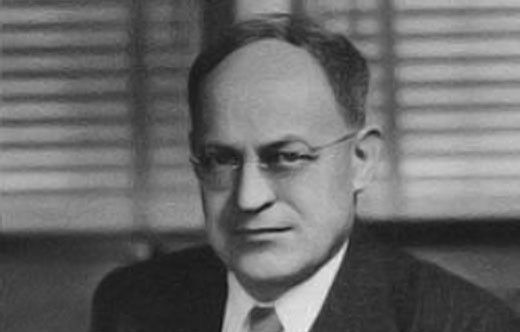
Walter Schlage
12. Locksmiths Are Moving Towards Biometrics
Do you think all of those instances in the movies where the star has his eye scanned to gain access to a building or room is far into the future? Think again. Biometrics — including things like fingerprints and retina scans — are becoming more widely available. And, this means that it has become easier for individuals to obtain use for these types of technologies at their home or business. Many of today’s technicians are implementing electronic smart locks and other similar technology on a growing basis. Look for a technician with ample skill and a dedication to modern locks.13. Good Locksmiths Can Duplicate Just About Any Key
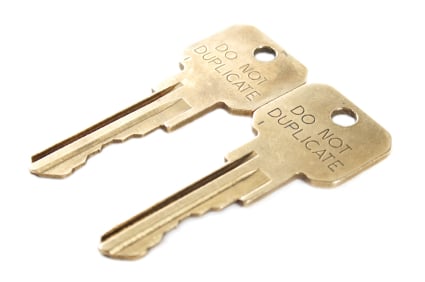
DO NOT DUPLICATE keys can, in fact, be duplicated by a professional locksmith.
14. You Don’t Always Have To Go to the Car Dealership
Along the same lines, it is important to know you do not always have to turn to your car dealership and pay an over-the-top fee to get a duplicate key made for your vehicle or to replace the one lost. Some automotive locksmiths can help with remote key fobs and even programming transponder keys. Some locksmiths can provide access to these duplication options without having to turn to a dealership to do so.15. Less-than-desirable Locksmiths Just Drill and Replace
Some companies want to make the most they can and will simply drill out all locks and replace them. This can happen instead of repairing the lock. However, truly skilled, licensed, and professional organizations do not do this. In many cases, these professionals will try to make repairs if possible. They can replace the lock for you, but they will do their best to keep costs lower by repairing them instead of replacing them. It is a good idea to ask if the company has this policy in place.16. The First Combination Lock Dates Back to 1857
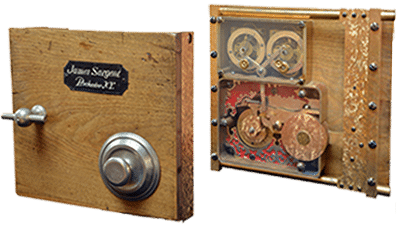
James Sargent’s first combination lock.
17. Skilled Locksmiths Undergo an Apprenticeship
For some, the thought of an apprenticeship seems quite old-fashioned. However, many of today’s locksmiths learn from working with and in existing locksmith shops. The trade skills are passed from one person to the next. While some schools offer basic locksmithing courses, most of the time, educated locksmiths will be involved in an apprenticeship for several years before they can call themselves a locksmith. This is also a key indicator of a well-qualified individual. Ask them what type of education they had to learn in the industry. This can offer some insight into what locksmith skills they really have.18. Only Locksmiths Should Install Deadbolts
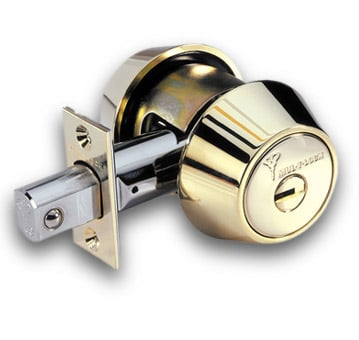
Deadbolts like this one from MUL-T-LOCK are best installed by a professional locksmith.
19. In Colonial America, Locks Were Not Common
Those living in Colonial America, as well as in most of the country’s early history, did not have locks on their doors. Locks were expensive and hard to make. This made them far harder to come by during this timeframe. However, many people who had specific items of value would have locks made to protect those items, such as locks designed specifically for chests or lock boxes. These were more affordable locks to purchase at the time.20. Trusted Locksmiths Never Keep Key Copies
You may wish your locksmith kept a copy of the key you just lost, but they do not. Most locksmiths – those who are trustworthy — never keep any type of key or rough form for the keys they make. This would not be safe to do. If you need a key made, you will need to bring in one to have replicated. If you do not have a key to copy, the locksmith can come to you and use a blank key to craft one. But, they do not have master keys nor copies of the keys they sell to you.21. Locksmiths Are Security Pros
You may turn to them when you need a key made or a new lock installed. However, our last fact about locksmithing is that you can and should ask your locksmith about ways to improve the security of the area. Some offer insight into security systems (though not all do this). Most will help you to find effective ways of protecting your property no matter what the challenges are. If you are unsure if your home is safe or ways to improve safety at your business, call a locksmith. They are happy to come to your location to provide insight and guidance to help you.Get the Locksmith Help You Need Now
At 1-800-Unlocks, you can secure the licensed and insured professionals you need to comprehensively handle any challenge you have. Use our website and enter your zip code to find local locksmiths with the skills you need for home, commercial, or automotive locksmith services.Author: Sam Wilson
I am a licensed locksmith and the owner of 1-800-Unlocks. The goal of our locksmith directory is to provide a safe place for customers to find a local legitimate locksmith and avoid the pitfalls of being a victim of scamming locksmiths.



